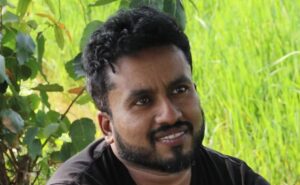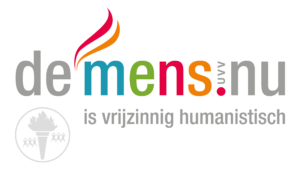


Rationalist Indika Rathnayaka
Online activist and self-proclaimed atheist and rationalist Indika Rathnayaka, faced accusations of ‘propagating fictitious ideas about Buddha and Buddhism’ on Facebook, creating unrest among Buddhists, and misleading the younger generation with his Facebook posts. The charges were subsequently dropped.
History of the case
2020
June
On 8 June 2020, a Buddhist monk and director of the Buddhist Information Centre, files a complaint with the Criminal Investigation Department claiming that Rathnayaka had propagated fictitious ideas about Buddhism and Buddha. The the Buddhist monk claims that Rathnayake should be arrested and charged under Article 291 B of the Penal Code and Article 3(1) of Sri Lanka’s ICCPR Act (2007). According to Rathnayaka, the monk based these accusations on Rathnayaka’s Facebook posts – stating that Buddhism originated from Jainism.
Reacting to the complaint filed with the Criminal Investigation Department, Rathnayaka filed a complaint himself with the Human Rights Commission of Sri Lanka on 10 June 2020, due to this infringement of his fundamental right of freedom of expression.
July
Rathnayaka gave a a statement before the Organised Crimes Prevention Police Division on 29 July 2020.
The case is dropped after this interview.
Background information
Rathnayaka is an online activist and convener of the Irreligious Community of Sri Lanka
Country Background
The Democratic Socialist Republic of Sri Lanka is a country of just over 20 million people occupying an island in the northern Indian Ocean. Formerly part of the British Empire, “Ceylon” attained independence in 1948, and became a republic in 1972. There are many ethnic groups on the island and Sri Lanka’s post independence history has been marked by ethnic violence.
The Constitution of the Democratic Socialist Republic of Sri Lanka
According to the Constitution, every person is “entitled to freedom of thought, conscience, and religion, including the freedom to have or to adopt a religion or belief of his choice.” The Constitution gives a citizen “the right either by himself or in association with others, and either in public or in private, to manifest his religion or belief in worship, observance, practice, or teaching.” However, the constitution also accords Buddhism the “foremost place” and commits the government to protecting it, but does not recognize it as the state religion.
Legal Framework
The Criminal Code under article 290 prohibits injury or “defilement” to places of worship, and under article 291 the “disturbance” of worship. 290A further criminalizes any act in a variety of circumstances within or near places of worship which is intended to “wound religious feelings” or may be considered an “insult” to religion. Moreover, the law goes on to criminalize in very broad terms any act, including speech acts and written words, made with the intention of “wounding the religious feelings of any person” (article 291A) or “outraging the religious feelings of any class of persons” (291B), respectively. These are all imprisonable offences.
Article 3(1) of the ICCPR Act 56 of 2007, states: ‘no person shall propagate war or advocate national, racial or religious hatred that constitutes incitement to discrimination, hostility or violence’ and makes any such crime a non-bailable offence which is punishable by up to 10 years in prison. Sri Lanka’s ICCPR Act 2007 falls short of international standards guaranteeing the right to freedom of expression.
Together with the Prevention of Terrorism (Temporary Provisions) Act No. 48 of 1979 these articles form the basis for Sri Lanka’s legal framework to combat hate speech.
Following a recent country visit, Ahmed Shaheed, UN Special Rapporteur on Freedom of Religion or Belief, noted that:
“civil society has observed that certain actors have attempted to misuse the ICCPR Act to restrict freedom of expression and crush dissent. Although inciting to discrimination, hostility and violence is criminalised under the ICCPR Act, many argued that the Act was not applied in a manner that would protect minorities against incitement; rather, it is invoked to protect religions or beliefs against criticism or perceived insult. ICCPR Act has ironically become a repressive tool curtailing freedom of thought or opinion, conscience and religion or belief.”
Humanists International is aware of several cases of individuals peacefully exercising their right to freedom of expression or belief who are facing complaints under Article 291(B) and 3(1) of the penal code and ICCPR Act, respectively.
Lived experience
According to Humanists International’s Humanists at Risk: Action Report 2020, Humanists and atheists in Sri Lanka face significant social stigma and discrimination.
One of the most difficult things for non-religious people is to gather in public with like-minded people. One respondent to Humanists International’s survey stated:
“Humanists can have gatherings and meetings only for a selected crowd at in-house auditoriums (subject to the permission of the management). Arranging a large public gathering or meeting is not possible as there could be troubles created by Buddhist monks. Particularly, ex-Muslims have no way of gathering in public, whether small or large, their safety and privacy would be at high risk. Ex-Muslim gatherings are always secret.”
Humanists International’s concerns and calls
Humanists International underlines once again that religious beliefs should not be protected from criticism. Indika Rathnayaka’s inalienable right to freedom of expression should be protected by the Sri Lankan government.
Humanists International’s work to support Rathnayaka
Humanists International closely monitored the case and joined international calls for the case against him to be dropped.
